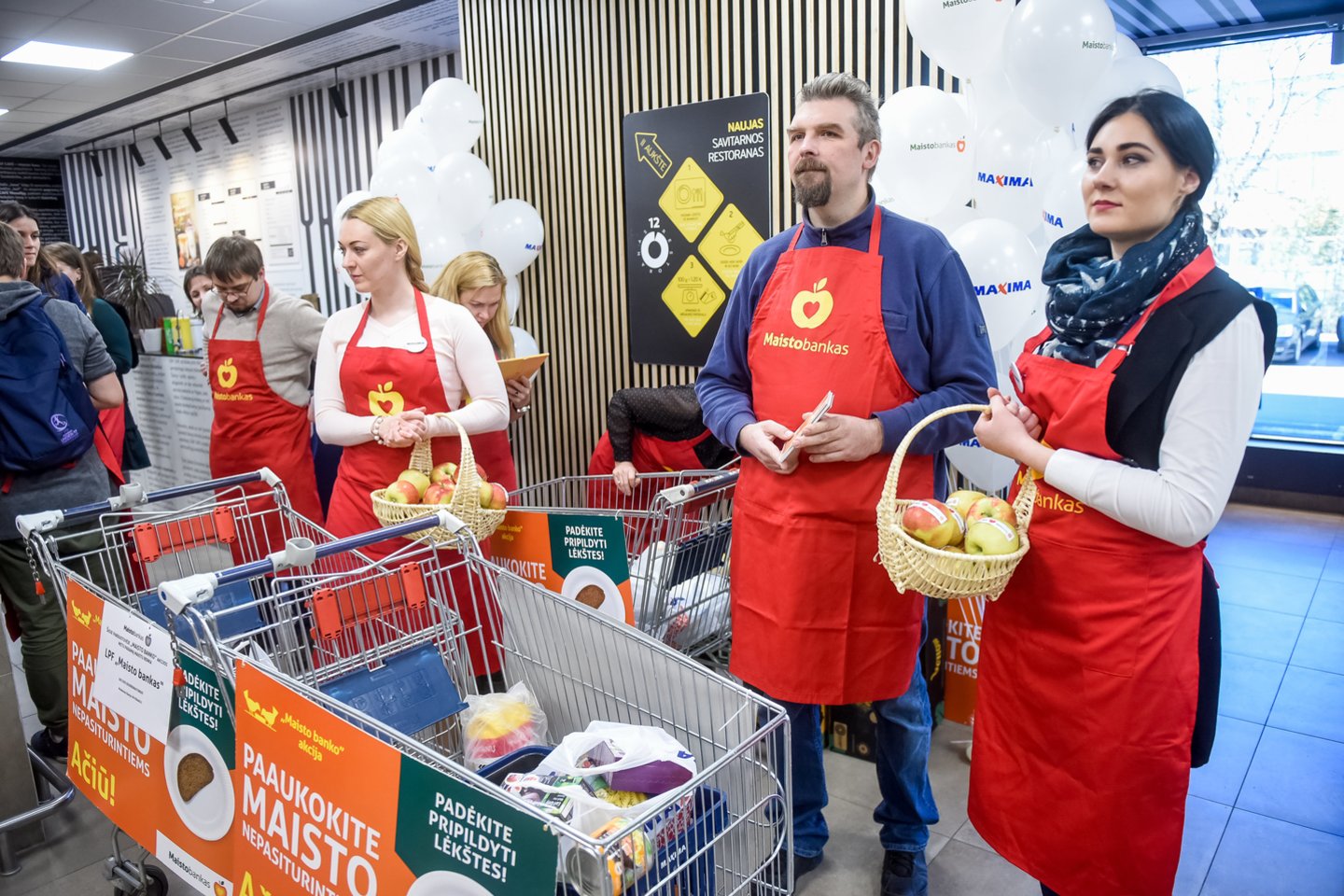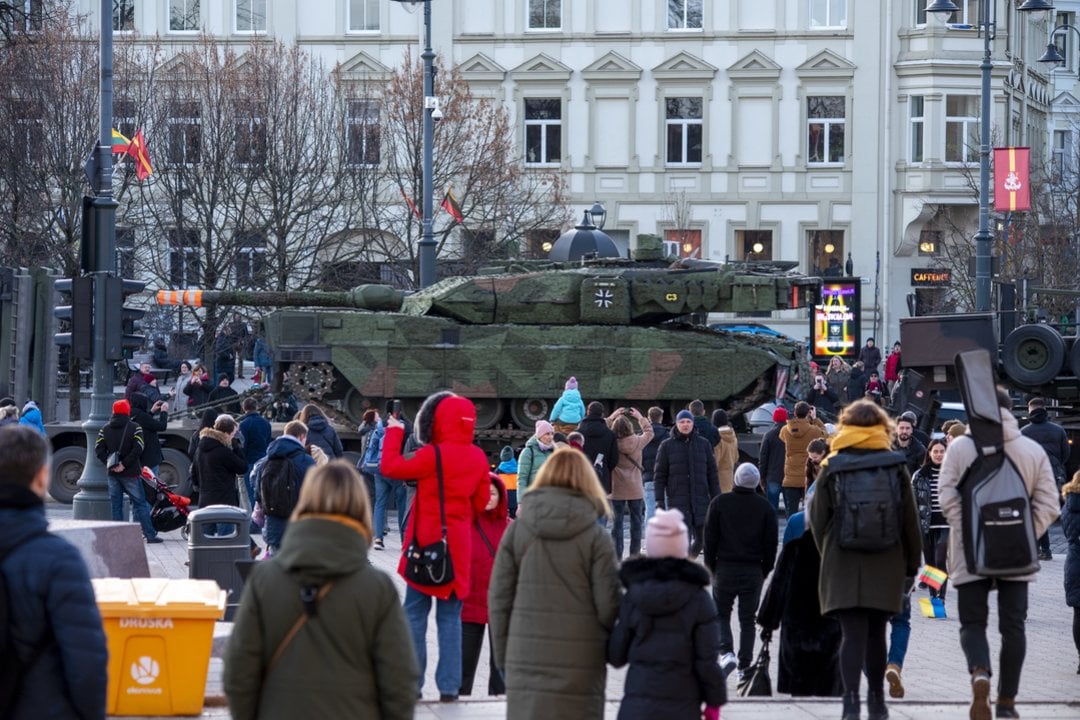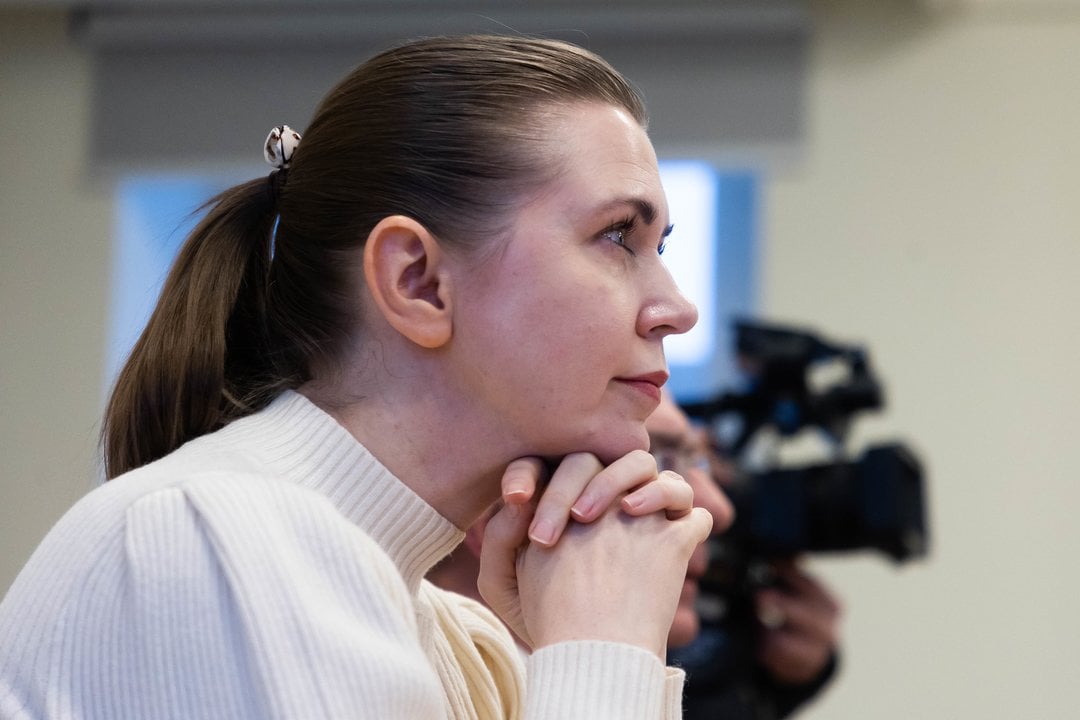But this year, inflation has made vegetables a luxury, with prices reaching unprecedented heights, leaving 12% of Lithuanians food insecure.
At the same time, some farmers are not hiding that they have been unable to sell all of last year's harvest because of the population's declining purchasing power. Therefore, the Food Bank calls on farmers to work together to clean out their warehouses before the new harvest season and not to leave the leftovers to rot but rather to donate to people experiencing poverty.
According to Simonas Gurevičius, the Head of the organisation, 61 farmers in the country donated their unrealised vegetables to the Food Bank last year, a number that continues to grow every year. However, it is believed that the potential is far from fully realised, with many vegetables still fit for consumption being thrown away rather than reaching people's tables.
The situation could be particularly acute this year, when falling purchasing power may mean that more vegetables than usual are left in the granaries. Eimantas Bakšys, a long-time gardener in Miroslavas (Alytus district), said there is a clear sense that the population's purchasing power is lower this year, and it is difficult to dispose of the harvest.
"For as many years as we have been farming, this year we can see the difference - people are buying less and are calculating much more. In the past, they used to buy in larger quantities, preparing ahead, but now they buy just a little to last them for the day or the week. Therefore, not all farmers may be able to sell their entire harvest", says Bakšys.
Farmers are also unable to sell some of their vegetables because of supermarkets' requirements and buyers' demanding nature.
"The problem is with medium-sized potatoes because Lithuanians need their potatoes to be like clogs; they don't buy smaller ones. So every year, we have a big challenge - where to put the smaller potatoes. The shovelers are a bit of a lifeline, but it is impossible to sell everything there. That is why I decided to donate 46 tonnes to the Food Bank.
Although I could give it to a bio-plant that would produce substrate - an excellent fertiliser - I choose to donate it to people. After all, we grow food first and foremost to eat it," says Rimantas Žebrauskas, who farms in the Kėdainiai region.
Food is scarce
While some people cannot sell their food, others desperately need it. According to a survey conducted by Spinter Research on behalf of the National Network of Poverty Reduction Organisations in February this year, 23.5% of people with incomes below EUR 500 said they lacked money for food. As a result, people on the lowest incomes are forced to choose between paying for their housing or food. As a result, more and more people are turning to charities for help.
"The saddest thing is that vegetables are becoming a real luxury. We aim to provide a nutritious meal for impoverished people, especially seniors and large families, so vegetables are essential to the basket. However, due to price increases, some people can no longer afford vegetables. Moreover, with the growing number of people in need, we are currently unable to fill everyone's baskets with vegetables," says Mr Gurevičius.
Some farmers are pessimistic: vegetables may continue to be unaffordable this year for the less well-off.
"I think that vegetables will become even more expensive this year. Because the price of seeds is rising, the price of seed vegetables is rising, and the cost of land processing has also risen very sharply. As a result, farmers in my area are already cutting back on vegetables, switching to grain crops because it's just not cost-effective. All this can lead to higher prices," says vegetable farmer E.Bakšys.
Inviting farmers to cooperate
Due to the problematic situation, rising prices and the increasing number of people living in poverty, the Food Bank continues to invite farmers to cooperate by promising to come, sort, and, if necessary, even pick their own crops.
"Of course, the farmer aims to sell the whole harvest. But unfortunately, this is not always the case, and, normally, part of the harvest is not realised. Last year, our volunteers harvested fields from farmers, sorted the vegetables and picked them themselves.
In this way, we saved 323 tonnes of fruit and vegetables from being thrown away. This year, we have increased our workload and can work even more closely with farmers - if they have leftovers, don't hesitate to get in touch with us, and we will take care of everything so that the farmer does not have to bear any transfer costs," says the Head of the Food Bank.
Gurevičius does not hide that farmers often avoid donating to charities because of the additional tax burden. However, the Internal Revenue Service (IRS) recently wrote to clarify a controversial exemption that clearly defines that donations do not cost anything.
"The new VMI (State Tax Inspection) clarification states that small producers and farmers who have registered for VAT and who have donated surplus produce to charity free of charge, even if the input VAT on the purchased goods has been included in the VAT deduction, are not required to calculate sales VAT or adjust the VAT deduction.
This is the case where the vegetables are given as a donation to a beneficiary entitled to provide charity, instructing the beneficiary to use the goods for charitable purposes. The beneficiary has undertaken to do so, and where the taxable value of the goods received by each charity does not exceed EUR 75 per calendar month. We are fulfilling this obligation, so there are no additional tax costs for farmers," says the Head of the organisation.
"The Food Bank can collect and distribute tens of tonnes of consumable food daily to those in need. Last year, the Food Bank saved 6,186 tonnes of food from being thrown away, 36% of which was fruit and vegetables. Farmers who can donate are invited to contact the Food Bank by email or phone at +370 664 44618.




